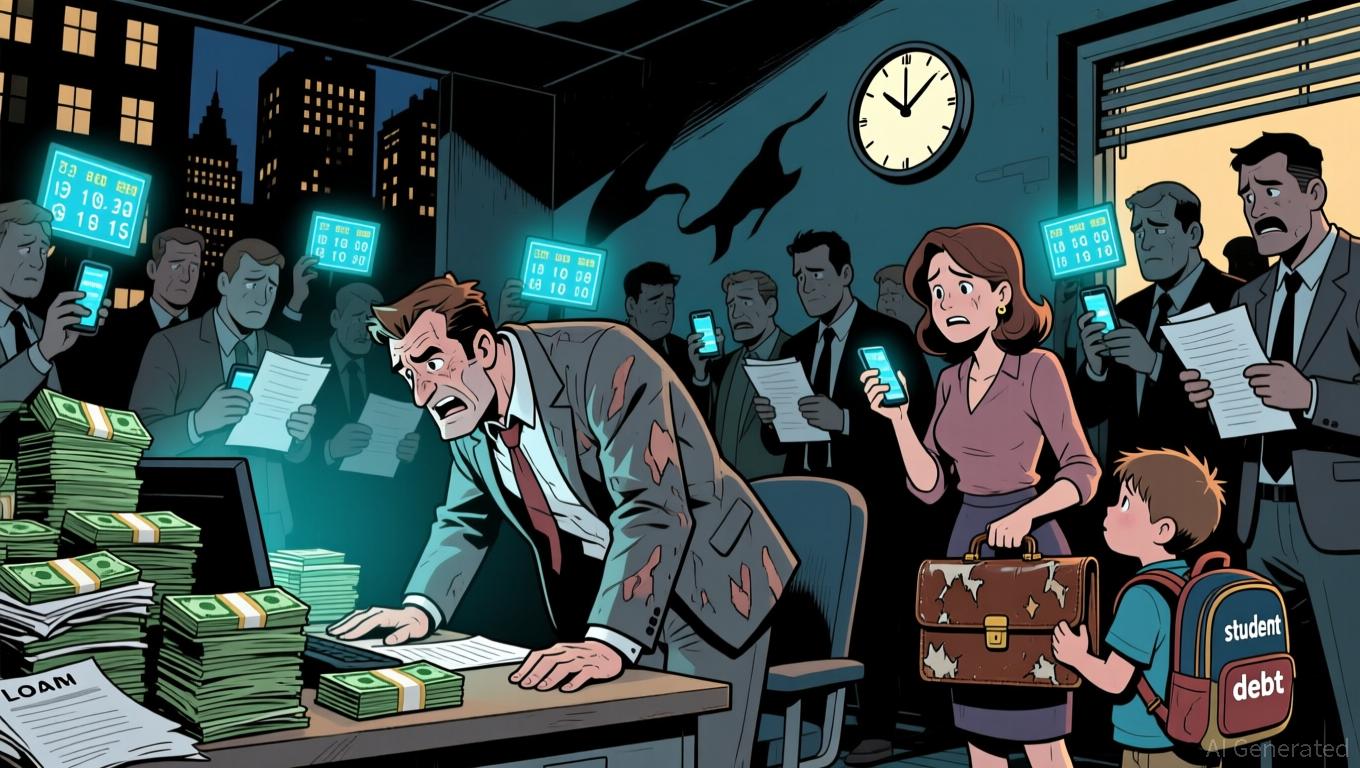Bitcoin News Update: With $1.2 Billion in Liquidations Impacting the Crypto Market, Investors Increase Their Long Positions
- Crypto market saw $1.2B in liquidations as Bitcoin and Ethereum dropped sharply, triggering massive losses for long positions. - High-profile traders like 0xc2a3 and Machi Big Brother suffered $33M+ losses, while others doubled down on $55M BTC/ETH longs. - Macroeconomic factors (Fed caution) and a $70.9M Balancer exploit worsened volatility, exposing market fragility amid thin order books. - Despite 2.7% BTC declines and Fear & Greed Index at 34, institutional Ethereum buys and AI-driven mining optimism
The crypto market underwent a turbulent day, with liquidations surpassing $1.2 billion as
This sudden downturn caught several prominent traders by surprise. Lookonchain, which tracks smart money, observed that trader 0xc2a3—who previously maintained a perfect win record—incurred losses in

Macroeconomic pressures intensified the selloff. The Coinbase Bitcoin Premium Index, which tracks arbitrage opportunities, hovered near -$30 during the crash, suggesting significant selling from U.S. investors, according to FXStreet. Analysts also cited the Federal Reserve's cautious approach, with Chair Jerome Powell downplaying the likelihood of a rate cut in December, as reported by
Ethereum was hit hard as well, with $112.8 million in liquidations amid the broader market slide, according to
The market's vulnerability was further highlighted by a $70.9 million exploit targeting the
This wave of liquidations continues a trend of extreme volatility. On October 10, nearly $20 billion in liquidations occurred, and October 30 saw over $1 billion in forced closures, FXStreet reported. Bitcoin is currently trading at $107,000, reflecting a 2.7% decrease in the past day, while the Fear and Greed Index dropped to 34, indicating widespread anxiety, according to Incrypted.
Despite the recent chaos, there are still signs of optimism. Bernstein analysts pointed out that Bitcoin miners could benefit from increased demand for AI data centers, leading to higher price targets, Incrypted reported. Meanwhile, BitMine's $300 million Ethereum purchase demonstrates continued institutional faith in crypto assets, TradingView noted.
Disclaimer: The content of this article solely reflects the author's opinion and does not represent the platform in any capacity. This article is not intended to serve as a reference for making investment decisions.
You may also like
Supreme Court Decision on Tariffs May Require $140 Billion in Refunds and Prompt Federal Reserve to Lower Rates
- UBS warns a Supreme Court ruling against Trump's tariffs could force $140B refunds, straining U.S. fiscal resources and prompting potential Fed rate cuts. - The refunds stem from 39% Swiss tariffs deemed potentially unlawful, with fiscal impact equivalent to 7.9% of 2025's projected budget deficit. - Legal challenges highlight executive overreach risks, while reduced tariffs could boost consumer spending and ease inflation, creating room for Fed easing. - Swiss business leaders have lobbied Trump to lowe

Ethereum Updates: TRON's GreatVoyage: Strengthening USDT's $122B Network to Compete with Ethereum

Arm's Low-Power Architectures Overcome AI Energy Constraints, Fuel 34% Growth in Revenue
- Arm Holdings reported $1.14B Q3 revenue, 34% YoY growth surpassing forecasts, driven by AI/data center demand. - Royalty revenue rose 21% to $620M while licensing revenue jumped 56% to $515M, reflecting strong IP adoption. - Strategic shift to develop full-chip solutions via Compute Sub Systems aims to compete with Nvidia/Amazon in AI hardware. - Parent company SoftBank explored Arm-Marvell merger to strengthen AI infrastructure, highlighting industry consolidation trends. - 20 "buy" ratings and $155 pri

Fed Faces a Choice: Boost Growth or Curb Mounting Debt?
- U.S. household debt hit $18.59 trillion in Q3 2025, driven by rising credit card, student loan, and home equity debt with delinquency rates at multi-year highs. - The Fed initiated rate cuts amid slowing job growth but faces a dilemma: easing economic strain risks inflating a consumer debt bubble while tightening worsens defaults. - Retailers, banks, and auto lenders face fallout as discretionary spending declines and loan defaults rise, while essential goods and debt collectors see increased demand. - P
